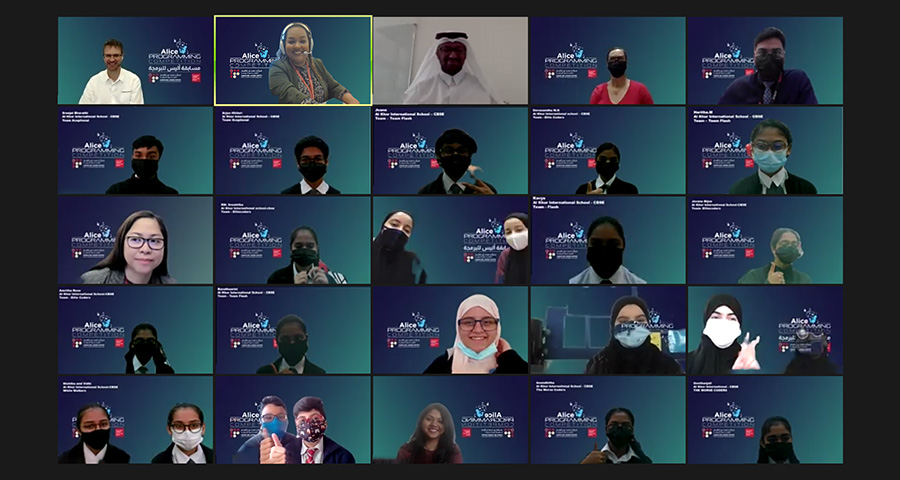
Carnegie Mellon hosts 7th annual Alice Programming Competition
Top five spots go to Al Khor International, Al Arqam Academy
Carnegie Mellon University in Qatar (CMU-Q), a Qatar Foundation partner university, hosted the seventh annual Alice Programming Competition for middle school and high school students in Qatar. Thirty-five students from seven schools were selected to present their final projects at the online competition. Teams from Al Khor International School and Al Arqam Academy took the top five spots.
The competition challenges students to use their computing skills to create an animation or game using the Alice educational software. Teams create a project in one of five themes: social responsibility, diversity, healthy lifestyle, accessibility and social media. The projects are then evaluated based on creativity and complexity.
Saquib Razak, associate teaching professor of computer science at CMU-Q, created the original Alice Middle East computing curriculum.
“At its essence, computing is about problem solving, and the programming competition is an excellent way to practice these skills. I am always so impressed with the detailed and nuanced ways students find to create such original projects.”
Alice Middle East was originally developed by researchers at Carnegie Mellon’s main campus to help children learn the basic concepts of computing using graphics and animation. In 2008, Her Highness Sheikha Moza Bint Nasser expressed an interest in bringing Alice to Qatar. Through a grant to CMU-Q from the Qatar National Research Fund (QNRF), Razak and a team of researchers localized Alice to the Middle East context, creating a curriculum in Arabic and English, and developing teaching resources.
In 2018, the Qatar Ministry of Education and Higher Education incorporated Alice Middle East into the Information Communication Technology (ICT) curriculum for Qatar government schools. Today, Alice is taught to more than 5000 students per year in either English or Arabic.
Alice Middle East is now funded by the Hamad Bin Jassim Center for K-12 Computer Science Education, a partnership between CMU-Q and the Jassim and Hamad Bin Jassim Charitable Foundation.
Recently, Razak’s team has expanded the Alice Middle East program into a three-year programming curriculum for middle school students. His research was funded through a grant to CMU-Q by QNRF.
“The expanded curriculum builds on the original one-year curriculum. Over three years, students use different programming tools to develop a solid foundation in computational thinking,” says Razak.
The expanded curriculum covers diverse topics that include the Python programming language and modules in game development and design.
